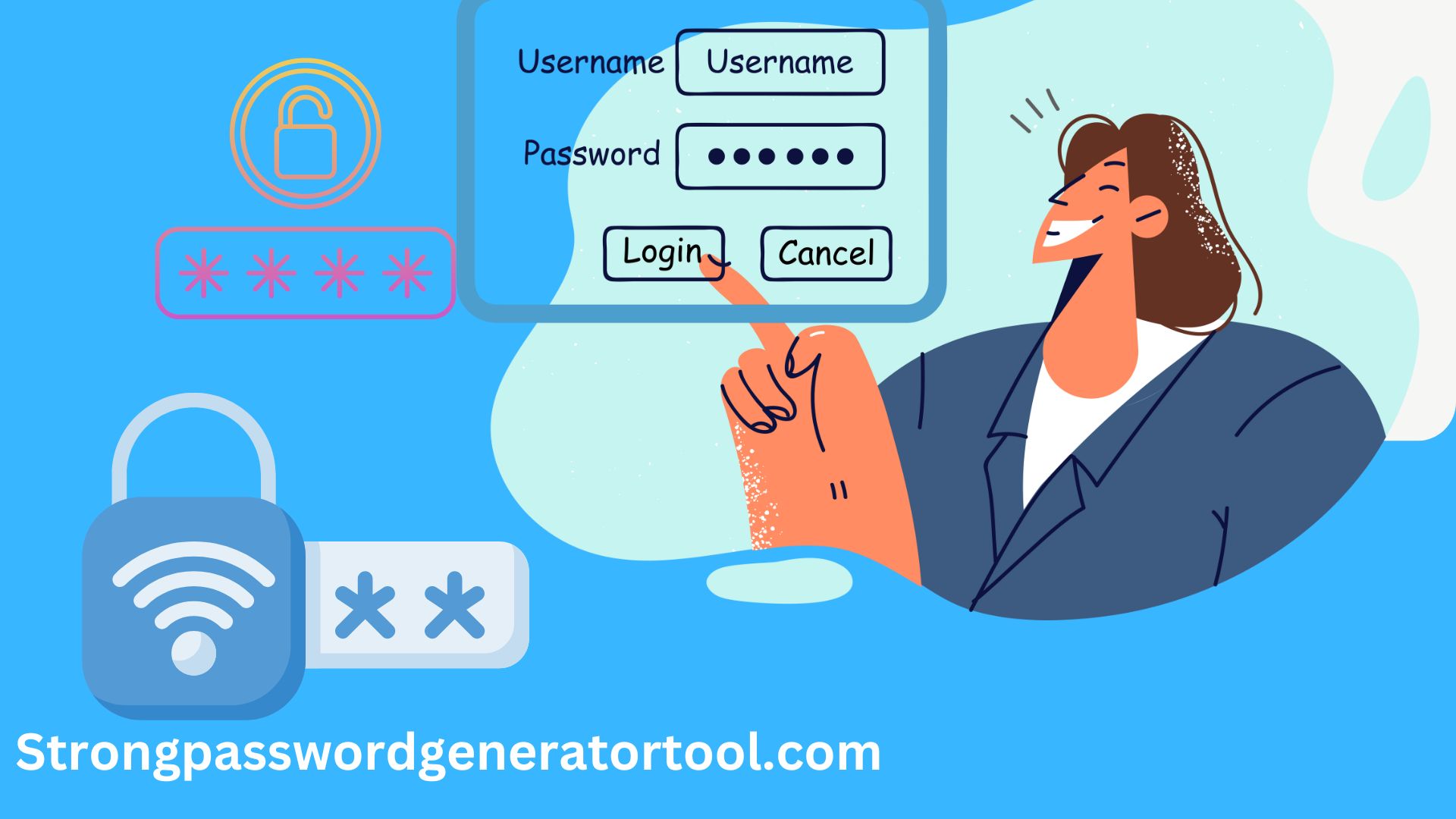In this topic, I’m going to talk about Managed Security Services (MSS) and their role in password security, drawing from my own personal experience. Password security is a critical aspect of protecting your digital life, and MSS can play a significant role in ensuring your credentials are safe from potential threats.
Table of Contents
ToggleWhat Are Managed Security Services (MSS)?
Managed Security Services (MSS) are specialized solutions provided by third-party companies to manage and enhance the security of your digital assets. These services are designed to help businesses and individuals stay ahead of cybersecurity threats by providing expert monitoring, management, and response capabilities.== >> Check out the complete book about Managed Security Services here < =

MSS in Password Security
When it comes to password security, MSS can be incredibly beneficial. Here’s how:
1. Continuous Monitoring
One of the key components of MSS is continuous monitoring. This means that your passwords and other security measures are constantly being checked for vulnerabilities. If a threat is detected, MSS providers can act swiftly to address it, ensuring that your passwords remain secure.== >> Check out the complete book about Managed Security Services here < =
2. Threat Detection and Response
MSS providers use advanced tools and techniques to detect suspicious activity and potential breaches. If an attacker tries to compromise your passwords, these services can identify unusual patterns and respond quickly to prevent unauthorized access.
3. Regular Security Assessments
Regular assessments and audits are part of MSS. This involves evaluating the strength and effectiveness of your password policies and systems. By identifying weaknesses and recommending improvements, MSS helps ensure that your passwords remain robust against evolving threats.== >> Check out the complete book about Managed Security Services here < =
4. Expert Guidance
MSS providers offer expert advice on best practices for password management. This includes guidance on creating strong, unique passwords, implementing multi-factor authentication, and using secure password storage solutions.
5. Incident Management
In the event of a security incident, MSS providers offer incident management services. This includes responding to breaches, recovering compromised accounts, and providing support to minimize the impact of an attack.== >> Check out the complete book about Managed Security Services here < =
Why Consider MSS for Password Security?
Investing in MSS can be a game-changer for both individuals and businesses. It’s not just about having a set-it-and-forget-it approach to password security. MSS provides ongoing protection and expertise that can help prevent potential breaches before they happen.
Examples of Managed Security Services in Action
To give you a clearer picture of how Managed Security Services (MSS) can enhance password security, let’s look at some practical examples:
1. Real-Time Threat Detection
Imagine a scenario where an MSS provider is monitoring your network and notices unusual login attempts from an unfamiliar location. The provider’s system detects this anomaly in real-time and triggers an alert. Within minutes, the MSS team investigates the suspicious activity, identifies that it’s a potential brute-force attack, and takes immediate action to block the offending IP address and secure your accounts. This proactive approach helps prevent unauthorized access before any damage is done.== >> Check out the complete book about Managed Security Services here < =
2. Enhanced Password Management
Consider a business that has recently deployed a new customer-facing application. The MSS provider helps by implementing advanced password policies for users, such as requiring complex passwords and regular updates. They also set up multi-factor authentication (MFA) to add an extra layer of security. By doing this, the MSS ensures that even if passwords are compromised, unauthorized access is still prevented through additional verification steps.
3. Incident Response and Recovery
Suppose a company experiences a security breach where attackers manage to obtain a list of employee passwords. An MSS provider’s incident response team quickly springs into action. They work to contain the breach, notify affected individuals, and guide them through the process of changing their passwords and securing their accounts. Additionally, the team performs a thorough analysis to understand how the breach occurred and implements measures to prevent future incidents.== >> Check out the complete book about Managed Security Services here < =
4. Regular Security Audits
Imagine a scenario where an MSS provider conducts a routine security audit for your organization. During this audit, they discover that several employees are using weak or duplicate passwords across multiple platforms. The MSS provider then works with you to develop and enforce stronger password policies, implements password management tools, and educates employees on creating and maintaining secure passwords. This ongoing support helps to continuously improve your overall password security.== >> Check out the complete book about Managed Security Services here < =
5. Customized Security Solutions
Consider a large corporation with complex IT infrastructure. The MSS provider creates a customized security solution that includes advanced password management features tailored to the company’s specific needs. This might include implementing sophisticated encryption methods for password storage, integrating with existing security tools, and providing specialized training for IT staff on managing and securing passwords.== >> Check out the complete book about Managed Security Services here < =
The Benefits of MSS in Password Security
By incorporating MSS into your password security strategy, you gain access to a range of benefits:
- Expertise: MSS providers bring specialized knowledge and experience to handle complex security challenges.
- Efficiency: Continuous monitoring and automated responses ensure that threats are addressed swiftly, minimizing potential damage.
- Comprehensive Protection: From threat detection to incident response, MSS covers various aspects of password security.
- Peace of Mind: Knowing that experts are actively managing and protecting your password security allows you to focus on other important tasks.
Drilling Deeper: MSS vs. In-House Security Management
When it comes to managing password security, you often have two main choices: using Managed Security Services (MSS) or handling it in-house. Each approach has its own set of advantages and drawbacks. Let’s dive deeper into a comparison of MSS versus in-house security management to help you understand which might be the best fit for your needs.
1. Expertise and Specialization
MSS:
MSS providers are specialists in cybersecurity and bring a wealth of knowledge and experience to the table. They stay up-to-date with the latest threats, tools, and techniques, ensuring that your password security is managed by experts who understand the complexities of the threat landscape. They offer a level of expertise that might be hard to match with an internal team, especially if you don’t have a dedicated security department.== >> Check out the complete book about Managed Security Services here < =
In-House Security Management:
In-house security teams may have a good understanding of your specific systems and processes, but they might not have the same level of specialization or access to the latest tools and technologies as MSS providers. Training and retaining top security talent can be costly and time-consuming. Additionally, keeping up with evolving threats requires continuous investment in both time and resources.
2. Cost Efficiency
MSS:
Outsourcing to MSS can often be more cost-effective than maintaining an in-house security team. MSS providers typically offer a range of services bundled into a single package, which can be more affordable than hiring full-time security professionals, especially for small to medium-sized businesses. Costs are predictable and usually based on a subscription model.== >> Check out the complete book about Managed Security Services here < =
In-House Security Management:
Building and maintaining an in-house security team involves significant costs, including salaries, benefits, and ongoing training. There are also additional expenses related to purchasing and maintaining security tools and technologies. For many organizations, these costs can be prohibitive, especially when trying to stay ahead of sophisticated cyber threats.== >> Check out the complete book about Managed Security Services here < =
3. Scalability and Flexibility
MSS:
MSS providers offer scalable solutions that can grow with your organization. Whether you’re expanding into new markets or adding new services, MSS can adjust to your changing needs without the need for a major overhaul. They can quickly adapt to new threats and technologies, providing you with the latest in security advancements.
In-House Security Management:
Scaling an in-house team to meet growing needs can be challenging and requires careful planning. As your organization grows, you’ll need to continuously recruit, train, and manage additional staff, which can be resource-intensive. Additionally, in-house teams may struggle to keep up with rapidly changing technology and threat landscapes without significant investments.== >> Check out the complete book about Managed Security Services here < =
4. Incident Response and Recovery
MSS:
MSS providers typically have dedicated incident response teams that are well-prepared to handle breaches and other security incidents. Their experience and resources enable them to act quickly and efficiently to contain and mitigate threats. They also offer recovery services to help restore systems and processes after an incident.== >> Check out the complete book about Managed Security Services here < =
In-House Security Management:
While in-house teams can develop strong incident response plans, they might lack the immediate resources and specialized expertise available through MSS providers. Handling incidents internally can lead to slower response times and potentially greater damage if the team isn’t well-prepared. Additionally, managing recovery can be complex and require additional resources.
5. Focus and Efficiency
MSS:
By outsourcing security management, your internal team can focus on core business activities without being bogged down by the complexities of cybersecurity. MSS providers handle the technical details and ongoing monitoring, allowing you to concentrate on strategic initiatives and business growth.== >> Check out the complete book about Managed Security Services here < =
In-House Security Management:
When managing security in-house, your team may be stretched thin trying to balance security tasks with other responsibilities. This can lead to inefficiencies and potential oversights, as the team juggles multiple roles and priorities.
Both Managed Security Services (MSS) and in-house security management have their own benefits and challenges. MSS offers specialized expertise, cost efficiency, scalability, and robust incident response capabilities, making it a strong choice for many organizations, particularly those without extensive internal resources. On the other hand, in-house management provides a deep understanding of your specific environment and direct control over security practices.== >> Check out the complete book about Managed Security Services here < =
Comparison: Managed Security Services (MSS) vs. In-House Security Management
Here’s a detailed comparison of Managed Security Services (MSS) and in-house security management for password security, organized in a tabular format:
| Aspect | Managed Security Services (MSS) | In-House Security Management |
|---|---|---|
| Expertise and Specialization | Highly specialized in cybersecurity with dedicated experts. | Varies; may lack specialized expertise compared to MSS providers. |
| Cost Efficiency | Generally more cost-effective with subscription-based models. | Higher costs due to salaries, benefits, and training expenses. |
| Scalability and Flexibility | Easily scalable to accommodate growth and changing needs. | Scaling requires significant investment in hiring and training. |
| Incident Response and Recovery | Dedicated incident response teams with quick, expert action. | May lack immediate resources; response can be slower. |
| Focus and Efficiency | Allows internal teams to focus on core business activities. | Internal teams juggle security tasks with other responsibilities. |
| Tools and Technology | Access to the latest tools and technologies as part of the service. | Requires independent investment in tools and ongoing upgrades. |
| Training and Development | Ongoing training and development handled by the MSS provider. | Continuous investment in training and development needed. |
Key Notes and Considerations
Managed Security Services (MSS):
- Expertise: MSS providers offer high-level expertise and access to cutting-edge tools that might be beyond the reach of internal teams.
- Cost: Typically cost-effective for small to medium-sized organizations due to bundled services and predictable pricing.
- Scalability: MSS can easily scale with your organization, adjusting services as needed without significant additional investment.
- Incident Response: Rapid and experienced response to security incidents, often with dedicated teams and established protocols.
- Focus: Frees up internal resources to concentrate on strategic and core business functions, rather than day-to-day security management.
Considerations:
- Ensure the MSS provider’s services align with your organization’s specific needs and compliance requirements.
- Evaluate the provider’s reputation and track record in handling incidents and providing effective security solutions.
In-House Security Management:
- Control: Direct control over security policies and procedures tailored to your organization’s specific environment.
- Integration: Seamless integration with existing systems and processes, with a deeper understanding of your unique IT infrastructure.
- Immediate Response: Potential for quicker response to internal issues, with direct oversight and coordination.
Considerations:
- Requires significant investment in recruiting, training, and retaining skilled personnel.
- Maintaining up-to-date knowledge and tools can be challenging and costly.
- Balancing security management with other operational responsibilities can impact overall efficiency.
Both approaches offer distinct advantages and can be effective depending on your organization’s size, resources, and specific security needs. Assessing your requirements and resources will help determine the best solution for managing password security.== >> Check out the complete book about Managed Security Services here < =
FAQs on Managed Security Services (MSS) vs. In-House Security Management
1. What exactly are Managed Security Services (MSS)?
Managed Security Services (MSS) are cybersecurity solutions provided by third-party vendors that handle the monitoring, management, and protection of your digital assets. MSS providers offer specialized expertise, continuous monitoring, threat detection, and incident response to safeguard your systems and data.
2. How do MSS improve password security?
MSS improve password security through continuous monitoring for suspicious activities, implementing strong password policies, conducting regular security assessments, and providing expert advice on best practices. They also offer multi-factor authentication and quick incident response to address potential breaches.
3. What are the main advantages of using MSS for password security?
The main advantages include access to specialized expertise, cost efficiency, scalability, comprehensive protection, and the ability to focus on core business activities while experts handle security. MSS providers can quickly adapt to new threats and provide robust incident response.
4. What are the benefits of managing password security in-house?
In-house management allows for direct control over security practices, seamless integration with existing systems, and a deep understanding of your specific environment. It can also offer immediate response to internal issues and customized security measures tailored to your organization’s needs.
5. What are the potential drawbacks of MSS?
Potential drawbacks include a reliance on a third-party provider, which may limit direct control over security practices. It’s crucial to ensure that the MSS provider aligns with your organization’s specific needs and compliance requirements.
6. What are the potential drawbacks of in-house security management?
In-house management can be costly due to the need for hiring, training, and retaining skilled personnel. It also requires significant investment in tools and technology, and balancing security tasks with other responsibilities can impact overall efficiency.
7. How do I choose between MSS and in-house security management?
Choosing between MSS and in-house management depends on your organization’s size, budget, and specific needs. Consider factors such as cost, expertise, scalability, and your ability to maintain and update security practices. Evaluate the pros and cons of each approach based on your unique circumstances.
8. Can MSS and in-house security management be combined?
Yes, combining MSS with in-house management can be an effective strategy. For example, you might use MSS for specialized services like threat detection and response while handling routine security tasks and policy enforcement internally.== >> Check out the complete book about Managed Security Services here < =
Final Words
Deciding between Managed Security Services (MSS) and in-house security management is a critical decision that can significantly impact your organization’s password security and overall cybersecurity posture. MSS offers specialized expertise, cost efficiency, and scalability, making it an excellent choice for many organizations, especially those lacking extensive internal resources. On the other hand, in-house management provides direct control and integration with existing systems but requires significant investment and ongoing maintenance.
Ultimately, the best approach depends on your specific needs, resources, and goals. By carefully evaluating the advantages and considerations of each option, you can make an informed decision that best protects your digital assets and supports your organization’s objectives.
Related Posts
- IPSec: Internet Protocol Security in password security Explained
In this topic, I’m going to talk about IPSec, or…
- PaaS: Platform as a Service in password security Explained
In this topic, I'm going to talk about Platform as…
- OOB: Out-of-Band Management in password security Explained
In today's digital world, keeping your passwords secure is more…
- DMZ: Demilitarized Zone in password security Explained
In this topic, I'm going to talk about the concept…
- IDaaS: Identity as a Service in password security Explained
In this topic, I’m going to talk about IDaaS, or…
- SOAR: Security Orchestration Automation and Response role in password security Explained
In this topic, I'm going to talk about SOAR-Security Orchestration,…
- DRP: Disaster Recovery Plan in password security Explained
In this topic, I’m going to talk about Disaster Recovery…
- OAM: Operations Administration and Maintenance in password security Explained
In this blog, I'm going to talk about Operations, Administration,…
- CCE: Common Criteria Evaluation role in password security Explained
In this topic, I’m going to talk about the Common…
- CICD: Continuous Integration and Continuous Deployment Role in Password Security explained
In this topic, I’m going to talk about how Continuous…
- CCM: Cloud Configuration Management Role in password security Explained
In this topic, I'm going to talk about Cloud Configuration…
- NAC: Network Access Control (alternative usage) in password security Explained
In this topic, I’m going to talk about Network Access…
- IRP: Incident Response Plan in password security Explained
In this topic, I’m going to talk about Incident Response…
- WORM: Write Once Read Many roles in password security Explained
When it comes to password security, the term WORM, which…
- COOP: Continuity of Operations Plan role in password security Explained
In this topic, I'm going to talk about how a…

